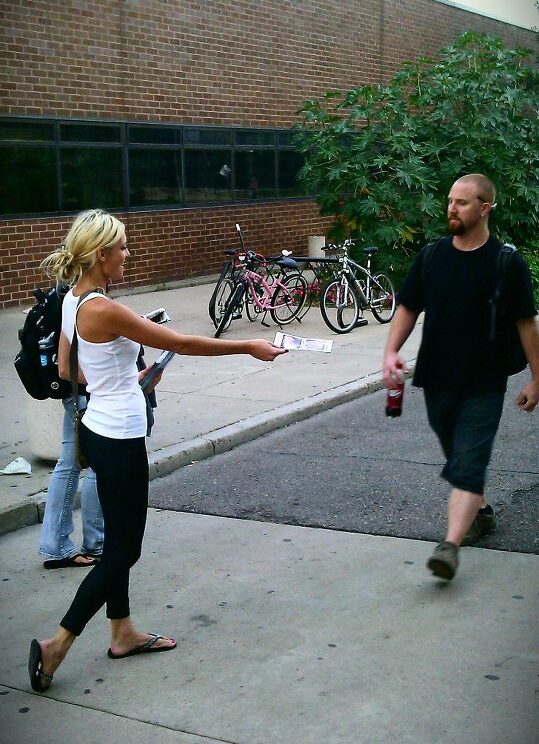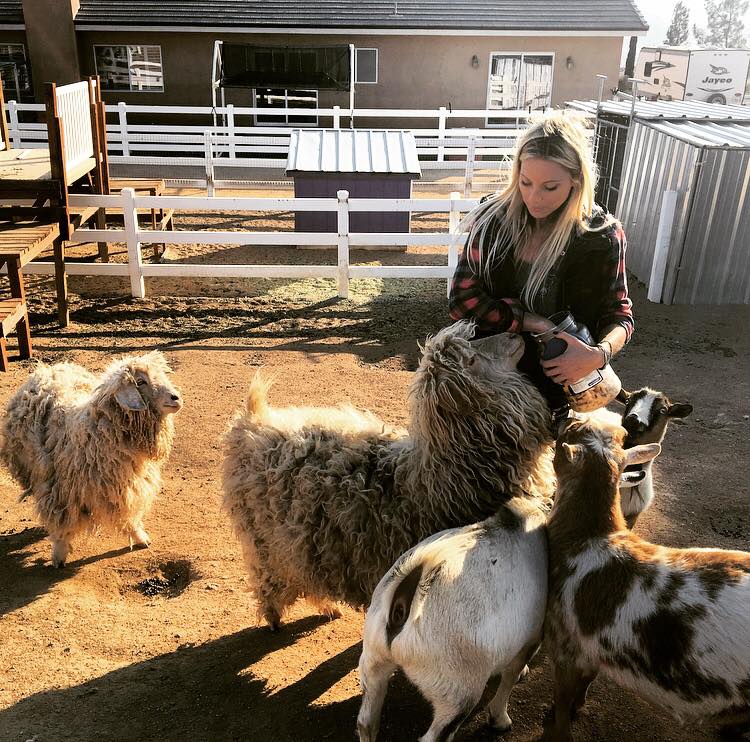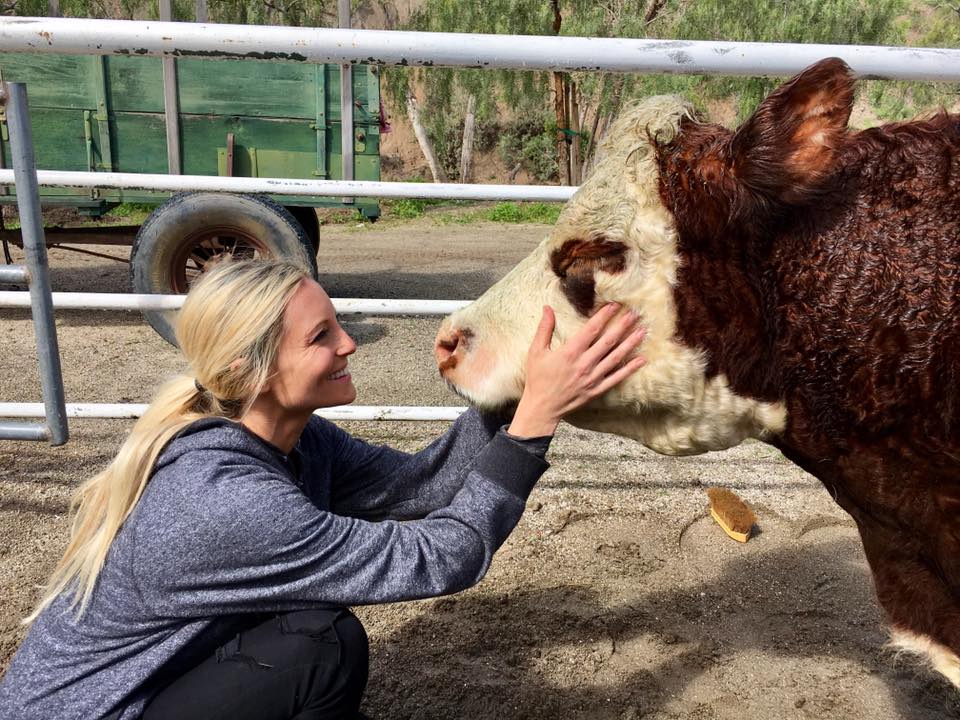Deanne Thomsen, an experienced Outreach Manager with expertise in Public Communications, reflects upon the similarities between vegan activism and Christian evangelism and shares her knowledge of effective and sustainable outreach.
 For those of us engaged in vegan activism and Christian evangelism, it’s hard to miss the parallels between the two worlds. When it comes to communicating your stance, it’s easy to see the difference between effective and ineffective conversations, both of which I have engaged in.
For those of us engaged in vegan activism and Christian evangelism, it’s hard to miss the parallels between the two worlds. When it comes to communicating your stance, it’s easy to see the difference between effective and ineffective conversations, both of which I have engaged in.
Upon learning about the plight of fur-bearing animals at age 14, my deep sadness parlayed me into activism where I began attending peaceful demonstrations outside of KFCs, Circuses, and Rodeos. The sadness soon became depression which then turned into anger. The more I learned and saw, the more resentment I had toward others who were apathetic to the victimization of animals. As a Christian, called to love above all else, I knew I had to turn that over to God.
I learned to practice more self-care, watch only necessary documentaries, and meet people where they were. I found that when a person feels loved and accepted where they are, they are more empowered to grow and evolve. The same is true of faith. We can tell someone all the areas they fall short or what they are doing wrong, but until they feel heard and accepted, they aren’t inspired to become better.
When someone hears our testimony of what our lives looked like before Christ, and before veganism, they don’t feel threatened or defensive. Instead, they are hopefully inspired. They’re more open to listening. People love to hear transformation stories because they are stories of hope – stories of changed lives. These journeys are seldom smooth, but the pain almost always makes us better.
I found that the most effective activism technique at the circus was to print off information on the local animal sanctuary and hand it to families waiting in line, encouraging them to visit there instead next year. I also learned that it’s much less effective to tell women in line, “you’re terrible mothers!” (I was young, ok!). I’ve learned that telling people I no longer suffer from stomach pain and digestive issues after changing my diet is better than proclaiming ‘“meat is murder.” I have learned that sharing Genesis 1:29 with fellow believers is helpful in knowing God’s original design for us, rather than saying, “Christians shouldn’t eat animals.”
 Empowering others to change looks like many seeds planted along the way. Research shows that people need to hear a message seven times before they take action. It’s always a process. You might ask a friend to make a call to their local representative on a bill affecting animals once you have done so yourself. You might share about the work of a great local organization and host a fundraiser where your friends will learn more about the issues facing animals. You might host a potluck at your house where everyone brings a vegan dish to share and try some foods they haven’t before. You might invite some friends from your small group to a local shelter or sanctuary. While working as the Faith Outreach Manager for the Humane Society of the United States, I would often share the link to Eating Mercifully on YouTube so fellow believers could watch and then engage in discussion. I would encourage my church to consider animals in their outreach efforts and collect items for local animal shelters in addition to the wonderful humanitarian work being done.
Empowering others to change looks like many seeds planted along the way. Research shows that people need to hear a message seven times before they take action. It’s always a process. You might ask a friend to make a call to their local representative on a bill affecting animals once you have done so yourself. You might share about the work of a great local organization and host a fundraiser where your friends will learn more about the issues facing animals. You might host a potluck at your house where everyone brings a vegan dish to share and try some foods they haven’t before. You might invite some friends from your small group to a local shelter or sanctuary. While working as the Faith Outreach Manager for the Humane Society of the United States, I would often share the link to Eating Mercifully on YouTube so fellow believers could watch and then engage in discussion. I would encourage my church to consider animals in their outreach efforts and collect items for local animal shelters in addition to the wonderful humanitarian work being done.
I also found that so many of my beloved plant-based friends struggled in believing there is a good and loving God after seeing so much suffering around them. It’s understandable when they don’t know God’s nature to think the suffering comes from Him or that He doesn’t care to intervene. I found it important to listen and meet them there, in their pain, and share how I too used to feel that way. This opened a door for me to share that I now know my loving Father wants the suffering gone even more than we do. That dominion of animals is not domination, but a loving responsibility similar to what a parent has for their child. We are simply caretakers of what is His (Psalm 24:1). I share that in God’s perfect and original design in Eden, all humans and animals ate plants and that we look forward to a return to that perfect place of peace, where nothing will hurt or destroy on His holy mountain – Isaiah 11:9. I remind them that we live in a fallen world full of suffering, and we co-labour with God to do the most we can while looking forward to that glorious coming day of a new heaven and a new earth.
 I’ve learned that effective evangelism is sharing who I was before I found the Lord, and how He has transformed my life. I’ve learned that it’s not effective to get into debates or yell at street preachers who tell people they are going to hell. As Christians, our goal is to help others achieve the full, meaningful, and everlasting life that we have found in Christ. And as vegans, our goal is to help others make the world a more compassionate place for all beings. With both, we aim to encourage a meaningful change in others. To do so, we must remember where we, too, came from. It comes with time, a lot of planted seeds, and true heart change. To be effective in our outreach, it takes patience, acceptance, love, and a strong personal example. As the quote goes,“ preach the gospel at all times, and when necessary, use words.”
I’ve learned that effective evangelism is sharing who I was before I found the Lord, and how He has transformed my life. I’ve learned that it’s not effective to get into debates or yell at street preachers who tell people they are going to hell. As Christians, our goal is to help others achieve the full, meaningful, and everlasting life that we have found in Christ. And as vegans, our goal is to help others make the world a more compassionate place for all beings. With both, we aim to encourage a meaningful change in others. To do so, we must remember where we, too, came from. It comes with time, a lot of planted seeds, and true heart change. To be effective in our outreach, it takes patience, acceptance, love, and a strong personal example. As the quote goes,“ preach the gospel at all times, and when necessary, use words.”
As Christians and vegans, we have a very special calling. God has placed this gift (or as I lovingly call it, my curse) of compassion on our lives. He trusts us to love all of His creation deeply and to be His hands and feet on this earth. What a calling! It’s an honour to be in the world, but not of it. To show the world a new way of living, of being, of loving. To be a light in the darkness. May we be worthy of this calling we have received. -Ephesians 4:1
Deanne shares more helpful tools and biblical insight in this Christian Vegan episode of the Plant-Powered People Podcast.




